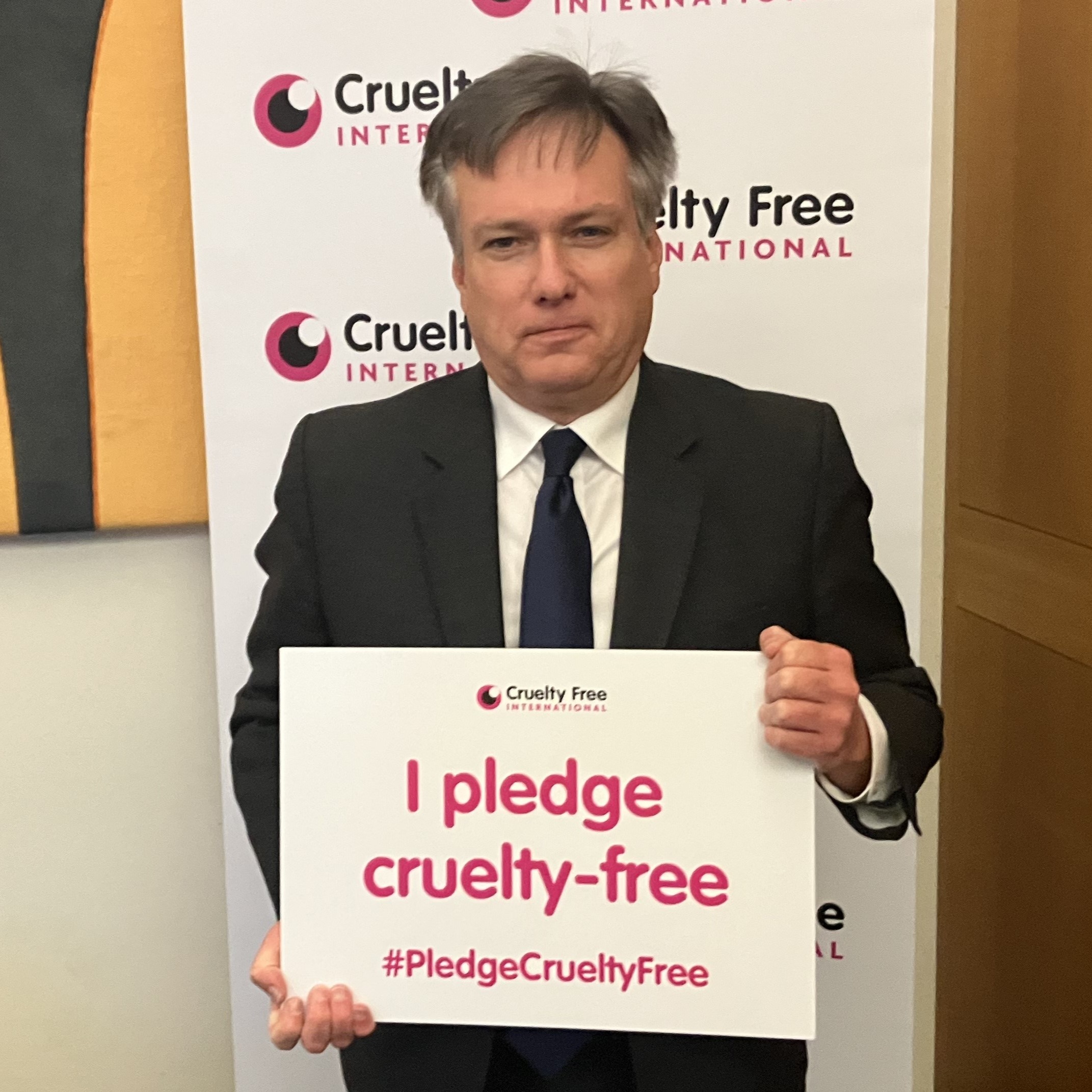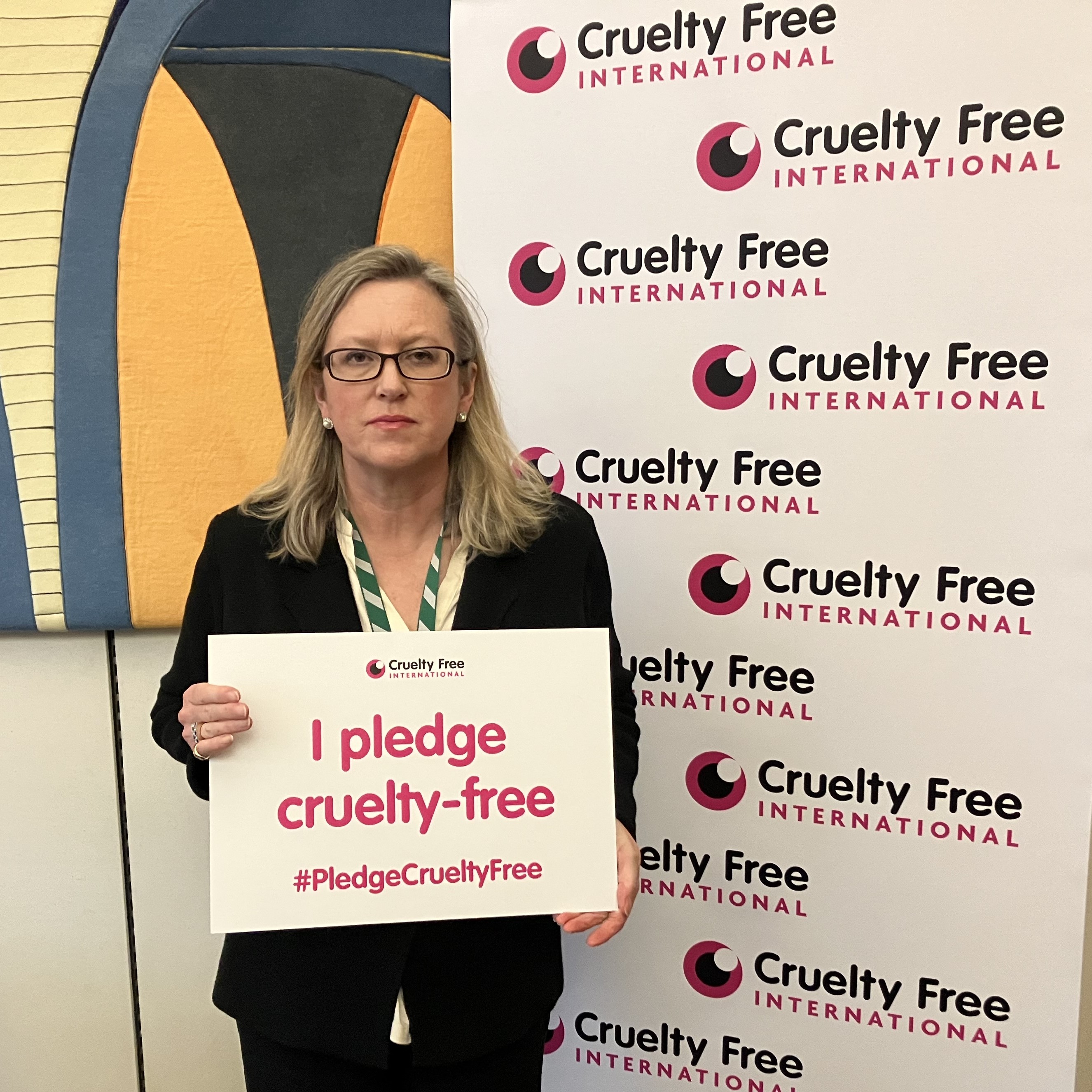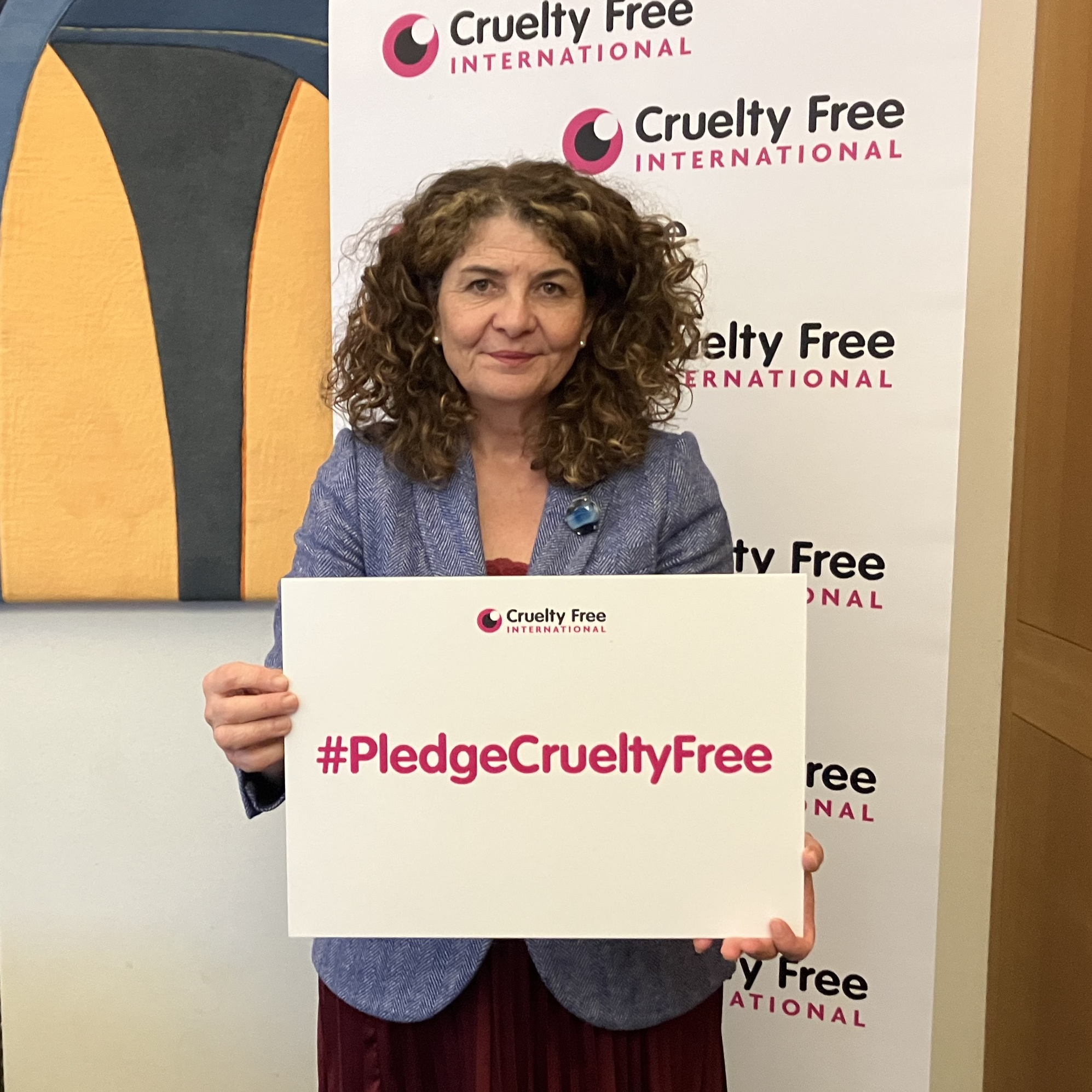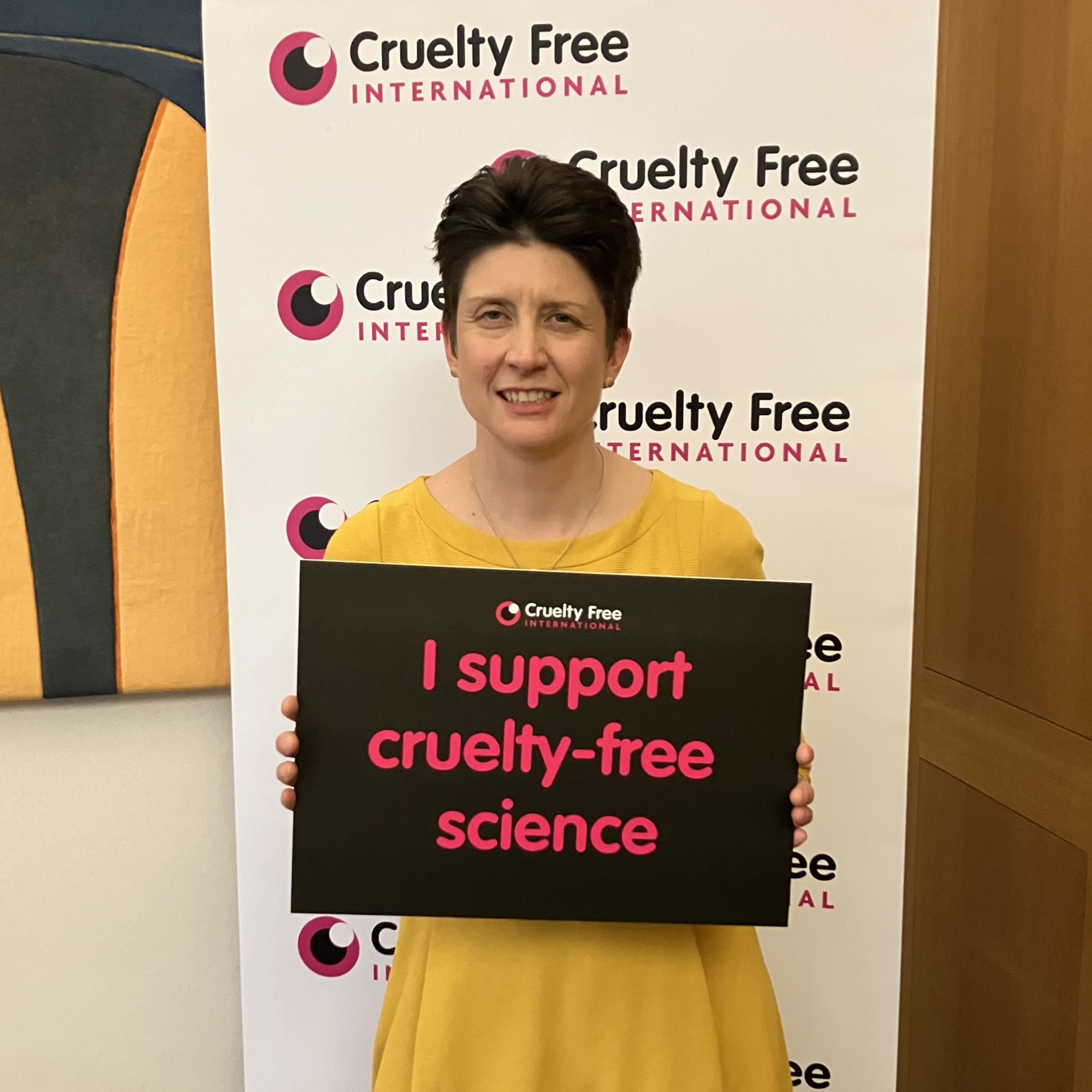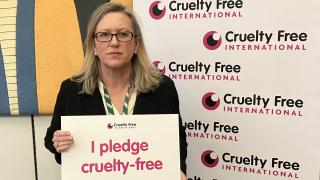
Tell your MP how important it is to end animal testing in the UK
We launched our Target Zero report, in support of our manifesto asks for the phase-out of animal testing, at the Houses of Parliament yesterday, as a further four MPs joined our #PledgeCrueltyFree campaign.
Ten MPs attended the briefing and received copies of our new Target Zero report, which sets out our plans including practical, low-cost, concrete steps that any future government could take in its first term to phase-out animal testing.
The event was sponsored by Henry Smith, Conservative MP for Crawley and Vice-Chair of the All-Party Parliamentary Group for Animal Welfare, who signed the pledge. Other MPs signing the pledge were Diana Johnson, Labour MP for Kingston upon Hull North and Chair of the Home Affairs Select Committee, a cross-party group of MPs which scrutinises the work of the Home Office, the government department responsible for animal welfare in the UK; Sally-Ann Hart, Conservative MP for Hastings and Rye; and Alison Thewliss, MP for Glasgow Central and the SNP’s Home Affairs spokesperson.
Other MPs in attendance were Chi Onwurah, Labour MP for Newcastle upon Tyne Central and Shadow Science Minister; Sir Roger Gale, Conservative MP for North Thanet and Deputy Speaker of the House; Kerry McCarthy, Labour MP for Bristol East and Shadow Minister for Climate Change; Anna Firth, Conservative MP for Southend West; Jo Stevens, Labour MP for Cardiff Central; and Stephen Timms, Labour MP for East Ham.
Our ‘Pledge Cruelty Free’ campaign calls for:
- The UK’s 1998 ban on testing cosmetics on animals, covering ingredients used both predominantly and exclusively in cosmetics, to be fully reinstated and put into law, to protect it from being abandoned by future governments.
- Homes to be made safer by modernising the system and removing animals from the testing of chemicals that go into the products we use every day, such as clothes, household cleaning, furniture, electronic goods, paints and dyes, and food; and
- The government to create a plan to phase-out animal testing forever, with a minister dedicated to delivering this plan across all government departments;
Following the revelations in our Judicial Review of the UK policy on animal testing for cosmetics in May 2023, it was discovered that the government had secretly abandoned the 1998 ban. The Home Secretary asserted that “the government is committed to replacing animals used in science wherever scientifically possible” and was “working with industry… to improve safety by the application of new non-animal science and technology”.
To honour these two commitments, government must show political leadership and take steps to accelerate progress.
Home Office statistics show that there were over 2.76 million uses of animals in laboratories in Great Britain in 2022. Ten per cent of those are tests required by regulators to assess the safety or effectiveness of chemicals, medicines and other products.
Yet, despite tests which are meant to keep us safe, the pharmaceutical industry is in a silent crisis: 92% of drugs fail in clinical trials even though they passed extensive pre-clinical tests (including animal tests) which suggested that they were safe and effective. Meanwhile, the rapidly growing availability of non-animal methods which often outperform traditional animal models provides an opportunity to drive better outcomes and bring an end to animal suffering in laboratories.
Of the remaining uses of animals in British laboratories in 2022, 45% were in the creation and breeding of genetically altered animals; and a further 29% in basic, curiosity-driven research. Many of these tests, which aren’t required by the regulator and are essentially voluntary, could be removed with very little impact. This should be one of the first areas to be addressed in a comprehensive government led plan to phase out testing on animals.
We calculate that some 80,000 animal tests could be ended immediately, as they continue to be conducted despite availability of approved non-animal alternatives.
Henry Smith MP said: “This report is an important contribution towards our efforts to end the suffering of animals. Ultimately, we all want to see a world where animal testing is a thing of the past but it’s a big task that requires serious thinking. Cruelty Free International have set out some concrete steps that we can take towards a phase out of animal testing and I strongly recommend that we give them serious consideration.”
Dylan Underhill, our Head of Public Affairs, said: “In a General Election year, it is vital that MPs know both the possibilities of cruelty-free science and how important the issue of animal testing is to their constituents. The UK stands at a crossroads in its approach to animal testing. We know that, as a country, we can do so much better. Animal testing touches our lives in many ways that most of us don’t appreciate, from cosmetics and household products to clothes, furniture, plastics, electronic and white goods, paints, dyes, garden fertilisers, and food.
“The government’s attitude towards animal testing has for too long been passive, and tolerant of an outdated status quo. Instead, to stop millions of animals being used in cruel and painful tests every year, we need progress and compassion. The government must do more to promote alternatives and end the use of animals in science, especially when modern innovations in non-animal methods can produce better results, potentially saving lives and resources.”
Show your support for a Cruelty Free UK by taking the Pledge – and find out how you can ask your MP to help kick animal testing out of our homes:

